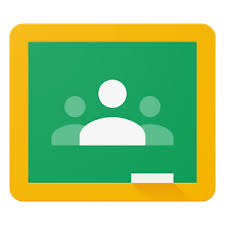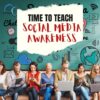
Search Results for: 33 safe sites
9 Great Websites to Inspire 3rd Graders
 Here’s a great list of age-appropriate, safe websites that will inspire third graders whether they’re in your classroom or at home (check here for updates):
Here’s a great list of age-appropriate, safe websites that will inspire third graders whether they’re in your classroom or at home (check here for updates):
- Riding the Wind with Kalani
- Weather Websites
- Wild Weather Adventure
- All About America
- USA Puzzle
- 360o views from around the world
- Computer lab favorites
- How stuff works
- Quick quizzes—how much do you know?
- Thinking Skills–Riddles
- USA Puzzle
- Water Cycle–very visual; good tool for lower grades
- Water cycle–interactive
- Water cycle—label diagram
More resources for third graders
33 Resources for Read Across America Day
Hour of Code Lesson Plans by Grade
Jacqui Murray has been teaching K-18 technology for 30 years. She is the editor/author of over a hundred tech ed resources including a K-12 technology curriculum, K-8 keyboard curriculum, K-8 Digital Citizenship curriculum. She is an adjunct professor in tech ed, Master Teacher, webmaster for four blogs, an Amazon Vine Voice, CSTA presentation reviewer, freelance journalist on tech ed topics, contributor to NEA Today, and author of the tech thrillers, To Hunt a Sub and Twenty-four Days. You can find her resources at Structured Learning.
Share this:
20 Great Websites to Inspire 2nd Graders
 Here’s a great list of age-appropriate, safe websites that will inspire 2nd graders whether they’re in your classroom or at home (check here for updated links):
Here’s a great list of age-appropriate, safe websites that will inspire 2nd graders whether they’re in your classroom or at home (check here for updated links):
- Edutainment with BBC
- Games that make you think
- Puzzle of student pic–create
- Plant games
- Plant life cycle
- Computer basics
- Computer puzzle
- Parts of the computer
- Videos on Computer Basics K-6
- Google World of Wonders
- Mt. Everest
- Flash cards and more
- Grammar—Adjectives
- Grammar games
- High-frequency words—hangman
- Vocabulary Fun
- Vocabulary-Spelling City
- Word and logic problems
- Word Study Games—Merriam Webster
- Virtual tour of America—via Biplane
More websites for 2nd graders
33 Resources for Read Across America Day
How to Teach Digital Citizenship in 2nd Grade
16 Word Study Websites for 2nd Grade
Jacqui Murray has been teaching K-18 technology for 30 years. She is the editor/author of over a hundred tech ed resources including a K-12 technology curriculum, K-8 keyboard curriculum, K-8 Digital Citizenship curriculum. She is an adjunct professor in tech ed, Master Teacher, webmaster for four blogs, an Amazon Vine Voice, CSTA presentation reviewer, freelance journalist on tech ed topics, contributor to NEA Today, and author of the tech thrillers, To Hunt a Sub and Twenty-four Days. You can find her resources at Structured Learning.
Share this:
33 Great Research Websites for Kids
Here are quick, safe spots to send students for research:
- BrainPop–with the BrainPop characters, a launchpad to curiosity
- CoolKidFacts–kid-friendly videos, pictures, info, and quizzes–all 100% suitable for children
- Dimensions–academic research geared for college-level
- Fact Monster–help with homework and facts
- Google Earth Timelapse–what changes to the planet over time
- Google Trends–what’s trending in searches
- History Channel–great speeches
- How Stuff Works–the gold standard in explaining stuff to kids
- Info Please–events cataloged year-by-year
- National Geographic for Kids
- Ngram Viewer–analyzes all words in all books on Google Books
- TagGalaxy–search using a cloud
- Wild Wordsmyth–picture dictionary for kids
- World Book–requires membership
Citing Resources
Kids Search Engines
How to Research
- A Google A Day
- How to Search on Google
- Power Searching (with Google)
- Teaching students to search/research
- Internet Search and Research–a lesson plan for K-8
Lesson Plans
Resources/Research
- Kids Picture Dictionary
- Primary Source Documents
- Talk to Books–research your topic based on books
Share this:
3 Websites to Gamify Your Math Class
Most elementary age kids I know love math, but that changes when they matriculate to middle school. If you ask seventh and eighth graders what their hardest subject is, they’ll hands down tell you it’s math. And that opinion doesn’t improve in high school. In fact, Forbes reported that 82% of public high schoolers in the well-to-do Montgomery County Maryland failed Algebra. US News blamed math knowledge for a 33% failure rate by Oklahoma high school seniors on their exit exams.
To turn those numbers around, parents and teachers alike are looking to technology. This goes well beyond Khan Academy’s online video training, into fantasy worlds of trolls and wizards, the type of activities most parents have tried to keep their kids away from. Now, they want to use their kids’ native interest in online gaming to scaffold math knowledge. Here are three wildly-popular choices that have made kids choose math practice for their free time:
Share this:
38 Art Websites for K-8
 If your children are eager to be creative this summer, but addicted to computers, try these wonderful art-oriented websites. For your youngers, start any visit to the internet with a conversation about safety, privacy, and good digital citizenship. Soon, they’ll know the rules and you won’t have to keep chatting about it:
If your children are eager to be creative this summer, but addicted to computers, try these wonderful art-oriented websites. For your youngers, start any visit to the internet with a conversation about safety, privacy, and good digital citizenship. Soon, they’ll know the rules and you won’t have to keep chatting about it:
You can find updates for this page here.
Lots of art websites for K-8
- Art Online
- ASCII art picture generator–instant
- ASCII Art Text Generator
- BigHuge Labs
- Image edit exposure tool
- Image Edited? Check here
- PhotoCube
Avatars
Share this:
Use Google Safe Search
Drop by every Friday to discover what wonderful website my classes, teachers and parents loved this week. I think you’ll find they’ll be a favorite of yours as they are of mine.
Age:
Elementary school, Middle school
Topic:
Research
Address:
Review:
I get this question a lot so wanted to repost this review. Well, that was my plan. Then I started editing, so now it’s pretty different.
Share this:
What You Might Have Missed in June–What’s up in July
Here are the most-read posts for the month of June:
- June is Internet Safety Month
- 23 SAT/ACT Prep Online Resources
- What is a Growth Mindset?
- How to Clean Up Google Classroom for the Summer
- How to Teach Digital Citizenship in Kindergarten and 1st Grade
- When is Typing Faster Than Handwriting?
- Are you as Tech-Smart as a Fifth Grader?
- #3: Make Your Own Wallpaper
- The Supreme Court in America
- 13 Online Bridge Building Resources
Share this:
The Supreme Court in America
When you think of the Supreme Court, you think of old people in black robes that dispassionately determine the fate of the country’s laws. That’s all true, but there’s more to maintaining law and order than a podium and a gavel. The Supreme Court is the apex of one of three branches in the American government:
- The Legislative (the House and the Senate) passes laws
- The Executive (the President) executes the laws
- The Judicial (all courts in the United States) judges whether laws abide by the Constitution
The Supreme Court consists of nine individuals who are nominated by the President and voted in by the Senate. Once approved, they serve for life, the hope being that this allows them to judge apolitically, based on the merits of the case rather than political leaning. These guidelines are not without controversy but are critical to a healthy, democratic environment.
Share this:
What You Might Have Missed in June–What’s up in July
Here are the most-read posts for the month of June
- June is Internet Safety Month
- World Environment Day: Living Responsibly with Nature
- Tech Tip #91: Rollback Windows Updates
- What you Need to Know about Evaluating Apps
- 6 Tech Activities for Your Summer School Program
- Looking for Summer Activities? Try These
- 15 Skills To Learn this Summer and Use Next Year
- 6 Websites that Teach Letters
- Need a New Job? Here’s What You Do
- 9 Websites to Address Social Media
Here’s a preview of what’s coming up in July:
- 17 Ways to Add Tech to your Lessons Without Adding Time to Your Day
- Top PC Shortkeys
- Tech Ed Lesson Plans
- Free Posters
- Habits of Mind
- We Land on the Moon
- Mentoring
- How to get Started with Ask a Tech Teacher

Share this:
Is it Time for a Social Media Awareness Class?
Christian Miraglia, Ask a Tech Teacher contributor, has some great ideas on teaching kids about Social Media Awareness:
Over the last decade, there has been pressure in the K-12 learning environment to create classes that address everything from managing your money to various efforts to address cultural inequalities. The problem with including these classes, which all have good intentions, is that there is not enough time to address these subjects without taking away from core subjects. However, with the continued issue of social media’s influence on our teens, I think it is time to address this, especially in light of the recent massacre in Uvalde. The shooter was a user of Yubo and had posted threatening messages on the platform. I am sure that many teachers and parents have never heard of Yubo, which creates a problem in itself. Since the problem is complex, there are no simple solutions, but in light of what we see as educators, it is time to address the problem of social media use by our children in an educational setting.
Teachers understand the influence social media has had on students. In a recent article in the publication EdSurge, teacher Tyler Rablin lamented on losing battle with students’ cellphone use in schools. He conveyed his frustration with having students distracted by social media alerts and viewing videos as he tried to teach. I experienced the same in my years in the classroom. Whether it was text messages or videos, I encountered daily disruptions to my teaching, no matter what measure I took. Rabin’s solution was to ban cell phone usage. I applaud him in this endeavor, but I also think that students must be made formally aware of the influence of social media.













































